Ginseng (Panax Ginseng ) has proven one of the most valuable works of nature, known ince ancient times and used to improve quality of life. Called the "root of life" or "root longevity, " this magical rhizome of antiquity is seen as a panacea - a cure for all diseases . Enshrined in traditional Chinese medicine for thousands of years, ginseng has a tonic effect on the whole body and has long been known as "man's herb".
It is believed that people in East Asia are known and appreciated properties of ginseng for some 5000 years. The name "Panax Ginseng" however, comes from Greek and literally means it is panacea. Some of the roots of the plant very much resemble a human figure and coincidentally in Chinese, the ginseng root’s name means person. Once the roots in the shape of a human body were extremely valuable. At some stage they were valued more than gold.
The ancient history of the herb has a mystical and legendary aura. Some legends say that ginseng is a gift from the gods , and can be converted into an animal or person. Another story tells how the "root of life" is born when a thunderbolt fell in a mountain stream. Water flowed into a hole formed ginseng as a light - a gift from nature, full of the heavenly power of fire.
Aside from legends and focus on the fact that ginseng has been around for about one million years, yet has managed to resist the many climatic and earth changes, it seems that there really is intervention from the divine world. Whether this is true or not can not be known so I'll just focus on the essence of the root and its benefits on human health.
Ginseng grows mainly in North China , North Korea, Tibet ad Siberia. It is still incubated in the Caucasus, Ukraine and other regions of the former Soviet Union. The plant reaches a height between 30-60 cm, but the root is 3-8 cm in diameter and is a perennial part of the plant, while the surface part lives for only one year.
The roots are widely used in many medicines, but are used with curative intent after the plant is 5-year of age. Usually the colors of ginseng are white, its little berries are bright red. The very root grows very slowly and in all that time (a period of 4-6 days) it gains a type saponins and glycosides that have a unique structure and action.
Types of Ginseng
Only in China, there are over 15 known species ginseng. Some of the most important species in the world are:
- The real Ginseng (Panax Ginseng) - It is also called Asian, Korean or Chinese ginseng. This species has the greatest use. In traditional Asian medicine, they cherish it as a "holy light". It is believed that strengthens the vital energy Qi, which makes it very useful and effective in long-term or chronic diseases;
- Siberian ginseng (Eleutherococcus senticosus) - very popular among athletes and professional athletes because it increases endurance. It also works very refreshing after hard physical labor. Take Siberian ginseng if you suffer from stress. Moreover, this kind of magical root is suitable for menopause;
- American Ginseng (Panax quinquefolium) - this type is considered to be the most balanced among all types. It has overall strengthening and toning effect and calms the nervous system. It has the ability to maintain normal blood sugar levels and improve metabolism;
- Pseudo Ginseng - this is called Indian ginseng. It is not used as a means to reinforce the tone of the body, but rather in reducing pain caused by injuries.
Wild ginseng can now be seen in very few places, but the cultivation of the plant was done thousands of years ago.

Composition of Ginseng
Why is ginseng known as a panacea? It is obvious that the secret lies in its complex of nutrients, including many glycosides, panaxin, panax acid, fitosterini, mucus, resins, tannins, alkaloids, enzymes, sugar , pectin substances, etc. Vitamins in the greatest quantity is ginseng are vitamin C, B1 and B2. Moreover, this root is rich in salts of phosphorus, manganese and iron, micronutrients and macronutrients.
The main biologically active component of ginseng are glycosides. Ginsenin glycoside has the ability to lower the concentration of sugar in the blood and stimulates the synthesis of glycogen. Another important ingredient in the "root of life" is the essential oil panaxen. It successfully stimulates and tones the heart and blood vessels. It has a calming effect and dulls pain sensations. The regulation of metabolism is a function of the acid in the root. It regulates the endocrine glands.
Usage of ginseng
Today, ginseng has fairly many applications, it is part of large number of agents, which are often damp combination of ginseng and other plant extracts, vitamins and trace elements. Ginseng tea has an unpleasant taste, but having it fresh is better than with impurities. Usually, the ginseng root is available whole or sliced .
About 300 ml of boiling water are enough about 3 slices of ginseng roots. After pouring, leave the tea to boil until the liquid is reduced to 1 cup. Then strain and optionally flavor with honey.
From the dried roots, you can make an alcohol extract. For this purpose, soak in 1 liter of alcohol with 30 g dried ginseng and leave for 15 days. Take 10-15 ml 1 to 2 times daily.
Dried roots can be prepared with honey. In this case, grind 50g. of the root or pour a little warm water and then strain and chop finely. Mix root with 1 jar of honey . Consume one teaspoon every morning on an empty stomach.
With Ginseng roots , you can prepare teas and other beverages. Dried ginseng is used even for cooking, it can be added to some soups, stews, braised dishes and salads, but only after soaking in water. When taking ginseng, do it in fasting, but just before eating, because it ensures maximum absorption of the root.
Benefits of Ginseng
Today ancient traditional medicine applications are reinforced with laboratory studies of the root, which confirm its enormous benefit in different areas of human health . Medicinal preparations of ginseng are taken mainly because of their stimulating and toning action for fatigue that is effective when you have a mild disability, impaired cardiovascular, neurological, psychological and other diseases.
Ginseng is a potent stimulator and regulator of brain activity. As a strong adaptogen in a dose, it simultaneously promotes active excitation and inhibition in the cortex. Ginseng improves the mobility of cortical processes and provides quicker recovery from fatigue. Thus, this herb works on the mental and physical performance of a human and the blood supply to the brain, improving memory from there.
Ginsenosides in Ginseng are substances that go up and on your concentration. Ginseng in conditions of constant tiredness and tension has been used as a cure since time immemorial. The root has the ability to regulate the secretion of stress hormones in the body and simultaneously regulate the organs (pituitary, hypothalamus, adrenal glands), which synthesize these hormones.
The magic effect of ginseng is associated with active formation of endorphins - the hormone of happiness. Endorphins are synthesized in the brain and the "little magicians", provide a good mood and positive outlook. In general, ginseng acts positively on the overall improvement of our self-esteem.
There have been studies that confirm that some cancer cells stop their development under the influence of ginseng. As a result of research, studies put out the fact that taking ginseng supplementation significantly reduces the risk of developing cancer. The root has a general strengthening effect, and is recommended for women with hypertension.
Athletes regularly use it as a supplement because it helps muscles to use energy more efficiently. As already mentioned, the root increases the physical endurance of the body and is useful for power loads.

Perhaps you are wondering why ginseng is called the "man root". Simply put, its active ingredients act on the muscle, which increases the erectile ability of a male. Many experts recommend the "potent" root for men who suffer from erectile dysfunction. Long term use of ginseng has been proved to increase testosterone in the body, and the amount of sperm, which automatically makes it a powerful weapon against infertility in men.
Chinese Ginseng has been proven beneficial for diabetes, anemia, ulcers, and others. It gives energy and removes fatigue, but it is important to note that the older the root, the more its skills are enhanced. Against diabetes, one can have a 100 to 200 mg of ginseng daily, which will regulate blood sugar levels. Ginseng is also suitable for people with hypoglycemia in the treatment of cardiovascular disease , heart failure and high blood pressure .
Dangers of Ginseng
Although extremely useful, ginseng is good to take, after consultation with a specialist, because frequent dosing and administration depends on the age of the person and the disease. Improper use of ginseng can ignite side effects like anxiety, headaches and even high blood pressure.
There is evidence that excessive doses of the healing roots and can cause nausea, vomiting, insomnia, muscle tension and fluid retention. It is best to start taking a low dose and gradually increase if necessary after a few weeks.
Take ginseng for a few weeks at most, then rest. It is unadvisable for people who suffer from hypertension. Expert advice is not to take ginseng in very hot wеather.

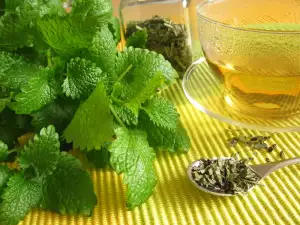





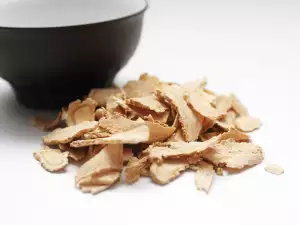
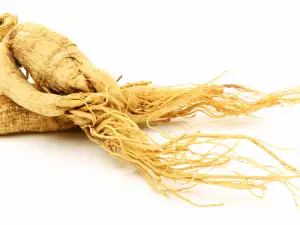
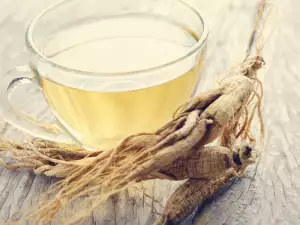

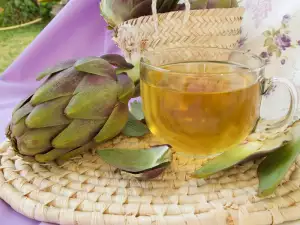

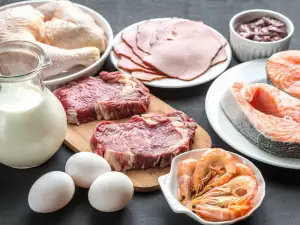


Comments